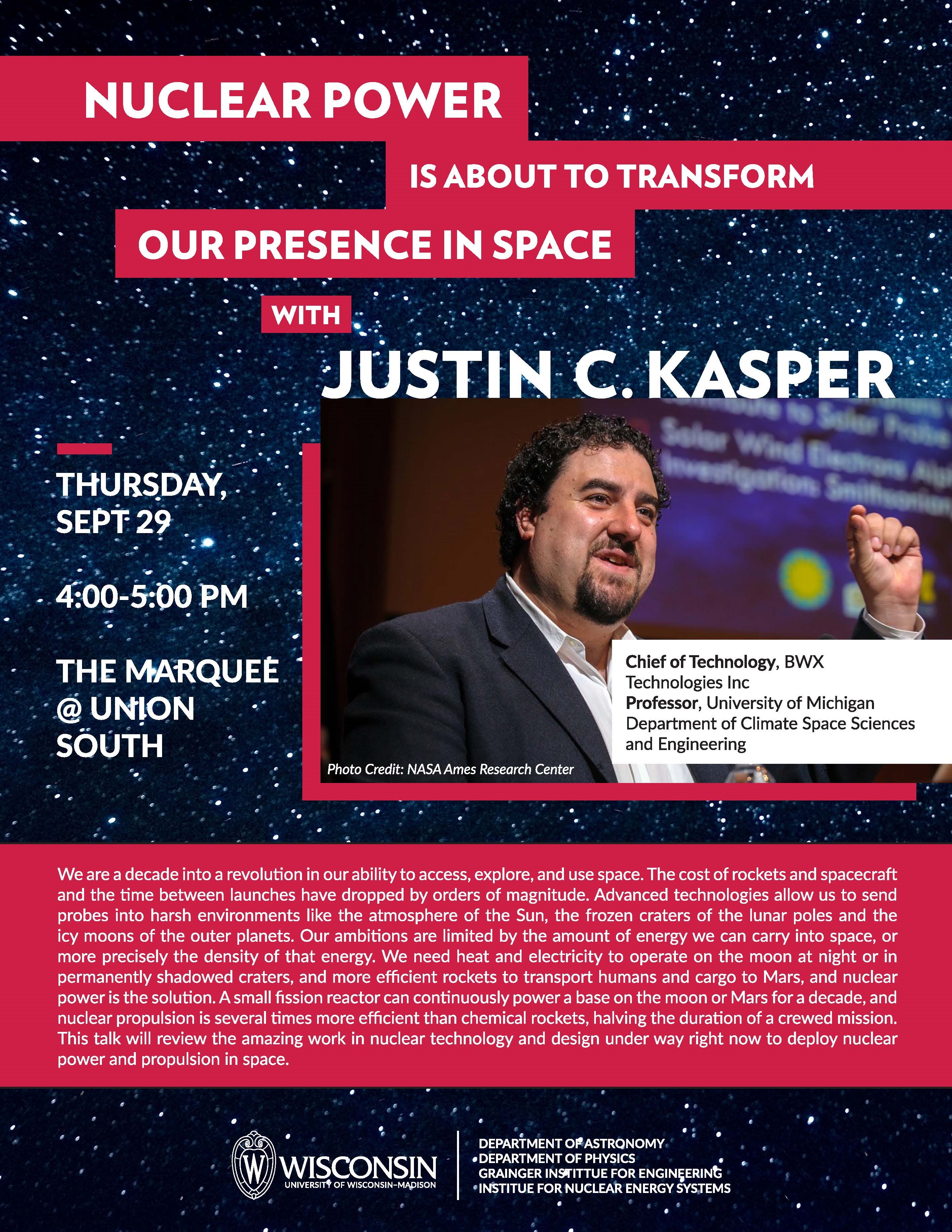Physics Department Colloquia |
Events During the Week of September 25th through October 2nd, 2022
Monday, September 26th, 2022
- No events scheduled
Tuesday, September 27th, 2022
- No events scheduled
Wednesday, September 28th, 2022
- No events scheduled
Thursday, September 29th, 2022
- Justin Kasper: Nuclear Power (fusion and fission), Galactic Radiation, and Space Exploration
- Time: 12:00 pm - 1:00 pm
- Place: Orchard View Room, Discovery Building
- Speaker: Justin Kasper, PhD, BWX Technologies, Inc. and University of Michigan Climate & Space

- Abstract: Special joint colloquium between Physics, Engineering Physics, and Astronomy:
Nuclear Power is about to Transform our Presence in Space.
We are a decade into a revolution in our ability to access, explore, and use space. The cost of rockets and spacecraft and the time between launches have dropped by orders of magnitude. Advanced technologies allow us to send probes into harsh environments like the atmosphere of the Sun, the frozen craters of the lunar poles and the icy moons of the outer planets. Our ambitions are limited by the amount of energy we can carry into space, or more precisely the density of that energy. We need heat and electricity to operate on the moon at night or in permanently shadowed craters, and more efficient rockets to transport humans and cargo to Mars, and nuclear power is the solution. A small fission reactor can continuously power a base on the moon or Mars for a decade, and nuclear propulsion is several times more efficient than chemical rockets, halving the duration of a crewed mission. This talk will review the amazing work in nuclear technology and design under way right now to deploy nuclear power and propulsion in space.
- Host: Cary Forest
Friday, September 30th, 2022
- Black holes and quantum information
- Time: 3:30 pm - 4:30 pm
- Place: 2241 Chamberlin Hall
- Speaker: Tom Hartman, Cornell
- Abstract: The black hole information paradox, discovered by Hawking in 1976, is that black hole evaporation seems to violate quantum mechanics by creating too much entropy. I will describe the current status of this problem and discuss recent progress, including a new calculation of the entropy of Hawking radiation that is compatible with unitary quantum mechanics. There are two key ingredients: a link between classical geometry and quantum entanglement, and higher topologies in quantum gravity known as replica wormholes. I will also discuss the prospects for applying similar methods to cosmology in the early universe, which is similar in some ways to the inside of a black hole.
- Host: Gary Shiu